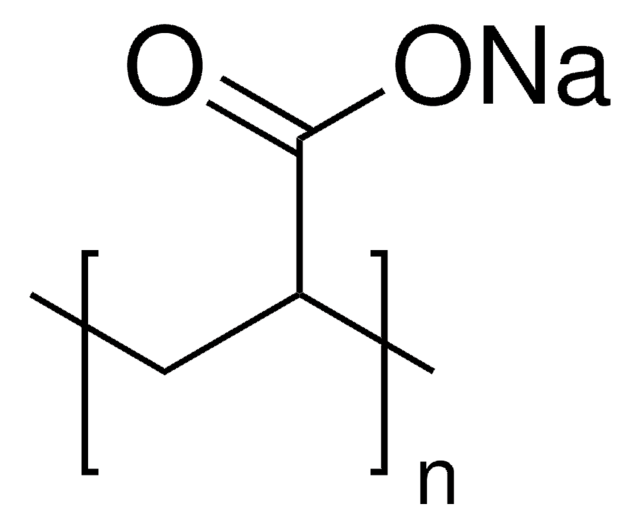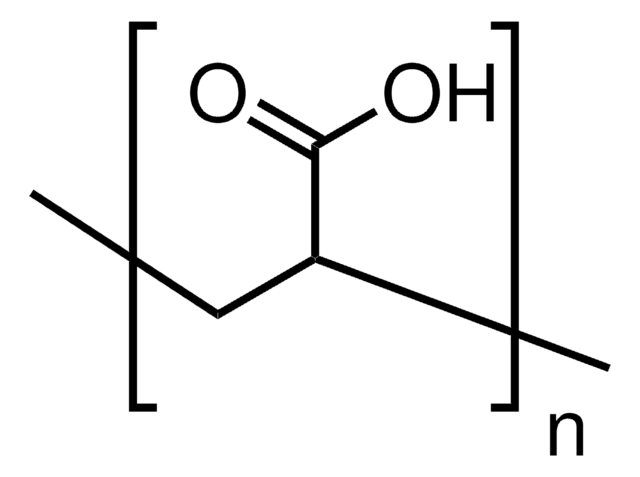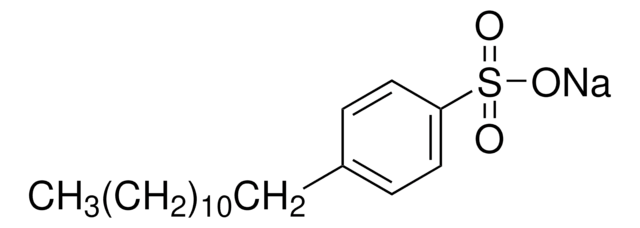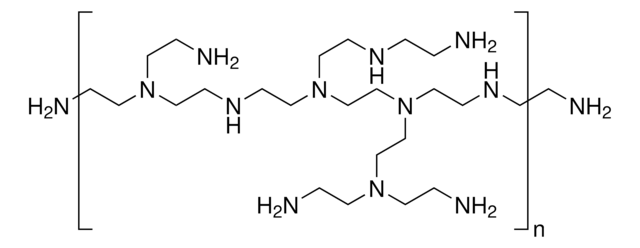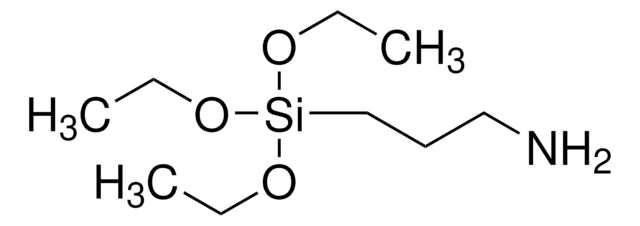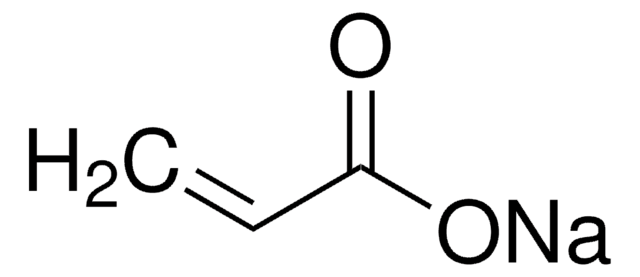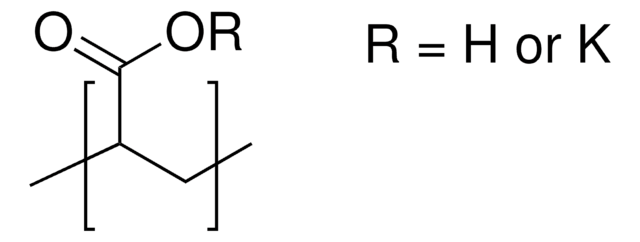447013
Poly(acrylic acid sodium salt)
average Mw ~5,100 by GPC, powder
Synonym(s):
Poly(sodium acrylate), Sodium polyacrylate
About This Item
Recommended Products
form
powder
Quality Level
mol wt
average Mw ~5,100 by GPC
impurities
8-14% water
pH
6-9
density
0.55 g/mL at 25 °C
InChI
1S/C3H4O2.Na/c1-2-3(4)5;/h2H,1H2,(H,4,5);/q;+1/p-1
InChI key
NNMHYFLPFNGQFZ-UHFFFAOYSA-M
Looking for similar products? Visit Product Comparison Guide
Related Categories
Application
Features and Benefits
Storage Class
11 - Combustible Solids
wgk_germany
WGK 1
flash_point_f
Not applicable
flash_point_c
Not applicable
ppe
dust mask type N95 (US), Eyeshields, Gloves
Certificates of Analysis (COA)
Search for Certificates of Analysis (COA) by entering the products Lot/Batch Number. Lot and Batch Numbers can be found on a product’s label following the words ‘Lot’ or ‘Batch’.
Already Own This Product?
Find documentation for the products that you have recently purchased in the Document Library.
Customers Also Viewed
Articles
Magnetic-plasmonic nanoparticles offer the combined benefits of both a magnetic probe as well as additional imaging modes usually associated with noble metal nanoparticles. Professor Shinya Maenosono (Japan Advanced Institute of Science and Technology) explores the synthesis, characterization, and proof-of-concept application of Ag/FeCo/Ag core/shell/shell magnetic-plasmonic nanobeads for imaging and isolation of cellular organelles (autophagosomes of COS-1 cells).
Recently, layer-by-layer (LbL) assembly has emerged as a versatile, gentle and, simple method for immobilization of functional molecules in an easily controllable thin film morphology.1,2 In this short review, we introduce recent advances in functional systems fabricated by using the mild, yet adaptable LbL technique.
We present an article that discusses two applications in particular; first, using these layers as polyelectrolyte membranes to control permeability.
Our team of scientists has experience in all areas of research including Life Science, Material Science, Chemical Synthesis, Chromatography, Analytical and many others.
Contact Technical Service